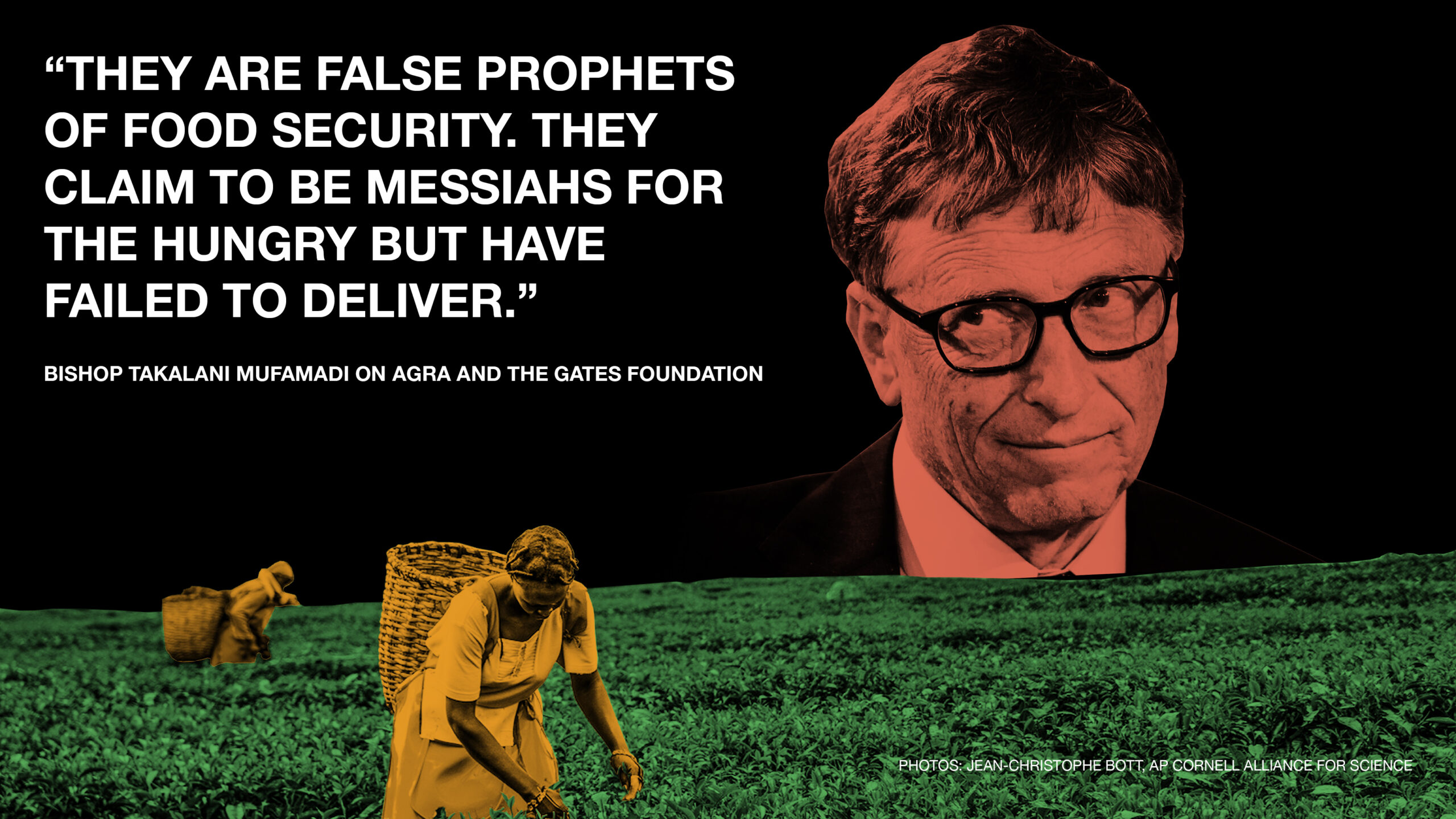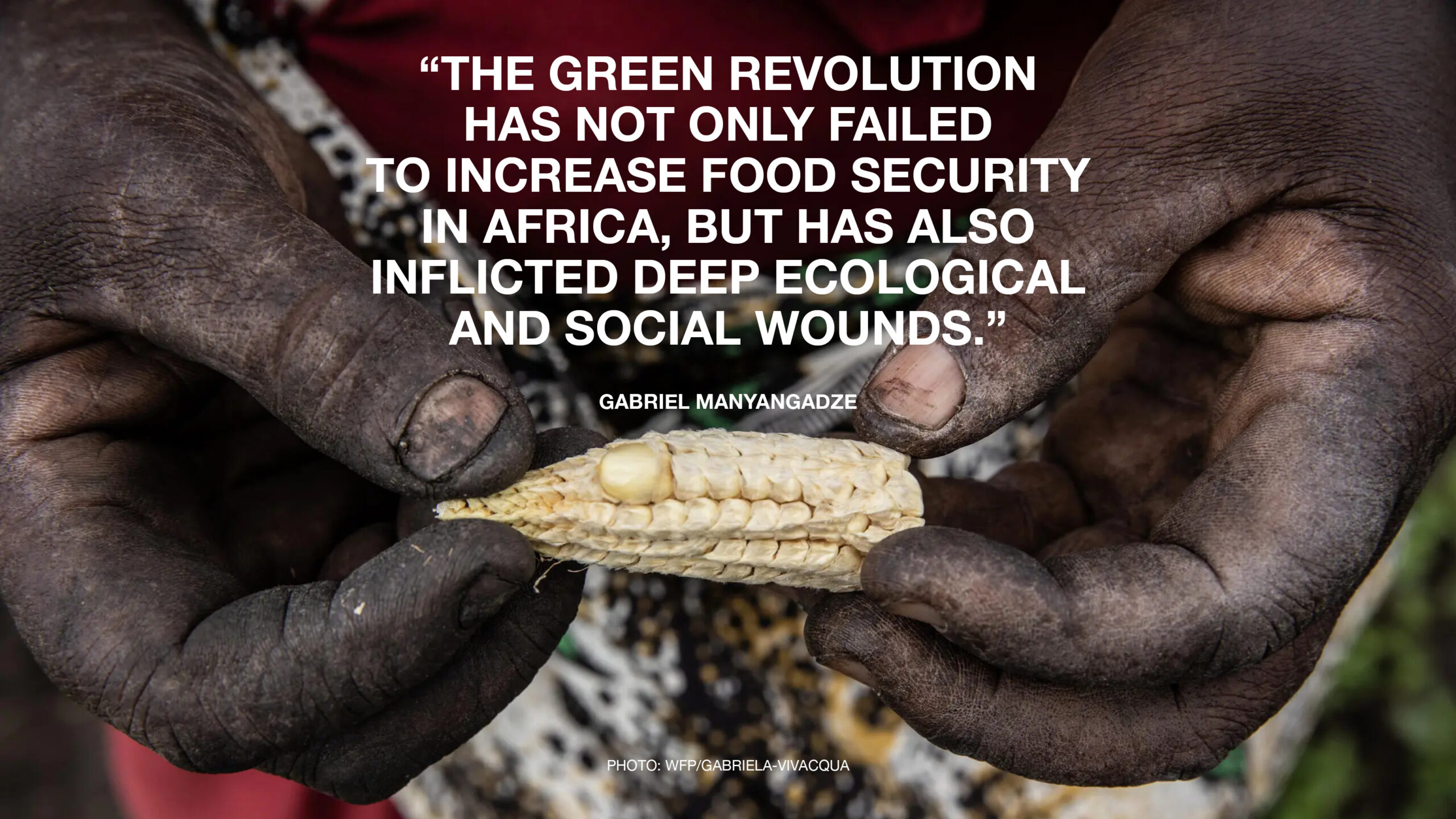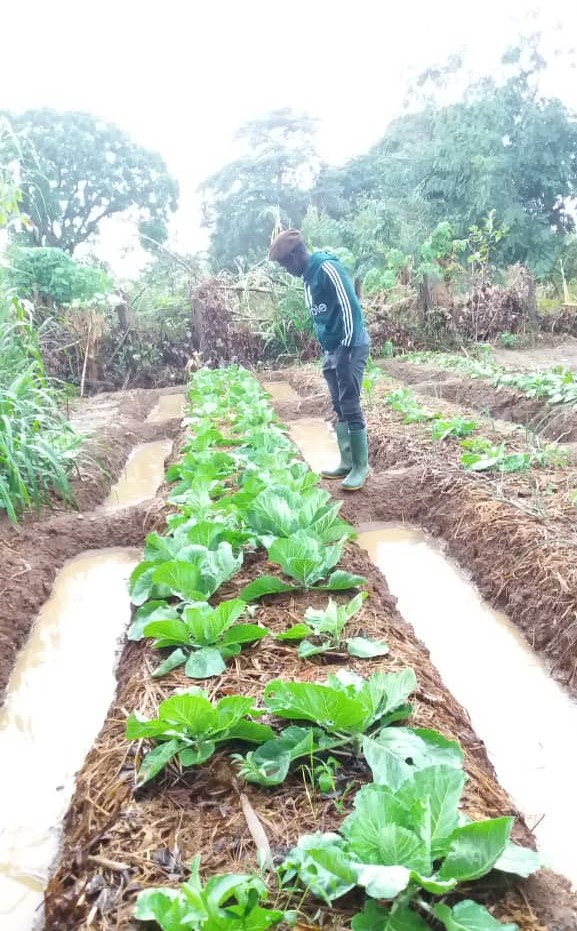Funding False Hope

Image credit: AGRA Watch
How Philanthropy Has Failed Africa
When the Bill & Melinda Gates Foundation partnered with the Rockefeller Foundation to launch the Alliance for a Green Revolution in Africa (AGRA) in 2006, they hoped to double the yields of smallholder farmers and halve hunger in Africa. Eighteen years and Billions of dollars later, the initiative has not only failed to meet its goals but has actively harmed the very communities it claimed to help.
AGRA’s approach – an industrial agriculture model dependent on synthetic fertilizers, pesticides, and expensive seeds, has left many farmers in debt and ecosystems degraded. Critics, including African faith leaders, environmental watchdogs, and grassroots organizations, are calling for reparations and a shift toward agroecology and locally defined solutions. At the same time, Tiyeni, a Malawian NGO, is quietly succeeding where AGRA has failed, offering a powerful alternative that aligns with the needs and demands of African farmers.

AGRA has promoted an industrial model of agriculture that poisons soils with chemicals and encourages farmers to go into debt.
AGRA’s Broken Promises
AGRA’s goal was ambitious: transform African agriculture by introducing industrial farming methods, and increasing access to chemicals and seeds for smallholder farmers. Instead of transformation and prosperity, many farmers have experienced financial ruin. Kenyan activists were quoted in this 2022 Seattle Times article about AGRA’s failure.
AGRA’s reliance on costly synthetic inputs has forced farmers to take on debt, often leading them to sell their land or household goods to survive. In Kenya, activists Celestine Otieno and Anne Maina have highlighted the tragic reality: “AGRA has promoted an industrial model of agriculture that poisons soils with chemicals and encourages farmers to go into debt.”
Despite this, AGRA continues to undermine grassroots efforts for agroecology. AGRA Watch, a campaign of Community Alliance for Global Justice, revealed how AGRA affiliates infiltrated regional agroecology policies in Kenya, diluting two years of farmer-led efforts to establish sustainable food systems.

Image credit: AGRA Watch

It’s time for international funders to transition towards agroecology through respecting and supporting locally defined holistic approaches in Africa, by Africa.
Faith Leaders Demand Change
In August 2024, African faith leaders issued a scathing open letter to the Gates Foundation, demanding reparations for the ecological and social damage caused by AGRA. The letter, signed by a collective of African clergy, stated:
“It’s time for international funders to transition towards agroecology through respecting and supporting locally defined holistic approaches in Africa, by Africa.”
The letter condemned AGRA’s corporate-driven model, which diminishes biodiversity, depletes soil fertility, and erodes food sovereignty. It called on funders to invest in agroecology, community seed banks, and farmer-led research—solutions that honor Africa’s indigenous knowledge and ecosystems.
Real Solutions Exist
While AGRA pushes chemical-intensive practices, real solutions like Tiyeni’s Deep Bed Farming (DBF) offer a proven, sustainable alternative. Based in Malawi, Tiyeni’s method uses simple tools and techniques to break up compacted soil, allowing water and roots to penetrate deeply. The results are superior to anything AGRA has achieved since it launched:
Doubling Yields in Year One: Farmers using DBF see immediate increases in crop yields without reliance on expensive fertilizers or pesticides. In 5 years farmers see a 12x increase in profitability.
Soil Restoration: DBF regenerates degraded soil, enhancing its ability to retain water and nutrients while reducing erosion.
Tiyeni has reached over 30,000 farmers in Malawi, demonstrating exactly the kind of results that AGRA claimed it could accomplish with chemicals and industrial techniques. With AGRA funding, Tiyeni could expand to reach more smallholder farmers in Malawi and beyond. Unfortunately, AGRA has provided no evidence to suggest they have funded any real sustainable solutions like DBF.
This AGRA webpage about their sustainable farming efforts has no useful information. No links to data or sources of information. Just a lot of PR fluff and no evidence of results. This is indicative of their entire operation.
Below: A Deep Bed Field retaining rain water.

A Call for Reparations and Support
If AGRA and the Gates Foundation are sincere in their mission to end hunger in Africa, they should:
- Acknowledge the Failures: Admit that the industrial agriculture model has not worked and has caused significant harm.
- Fund Agroecology: Redirect funds to support organizations like Tiyeni that are successfully implementing sustainable agroecology farming methods.
- Invest in Africa-Led Solutions: Follow the advice of African faith leaders and empower local communities to define their own approaches to food security.
It’s time for global funders to support initiatives that prioritize soil health, biodiversity, and the resilience of smallholder farmers. Reparations aren’t just a moral obligation; they’re a necessary step toward building equitable and sustainable food systems in Africa. AGRA’s continued support of harmful industrial agriculture practices is a clear indicator that AGRA is more interested in profit, than doing anything good for those in need. Billionaire philanthropy is an empty promise that funds false hope for millions that are already suffering.
About Tiyeni
Tiyeni is a Malawian NGO with a UK funding arm. They show farmers how to improve their crop yields using an extremely low-cost, low-technology set of methods that they’ve pioneered. It’s an advanced and highly effective form of climate-smart agriculture (CSA). Learn more about Tiyeni.


About the author
I’m John Ellis, a people before profit kinda guy and permaculture evangelist. I write about the environment and the corporate destruction of our planet for profit. I believe the only way we survive is if capitalism dies. I can be reached at The Chophouse: john@chophousevideo.com.
